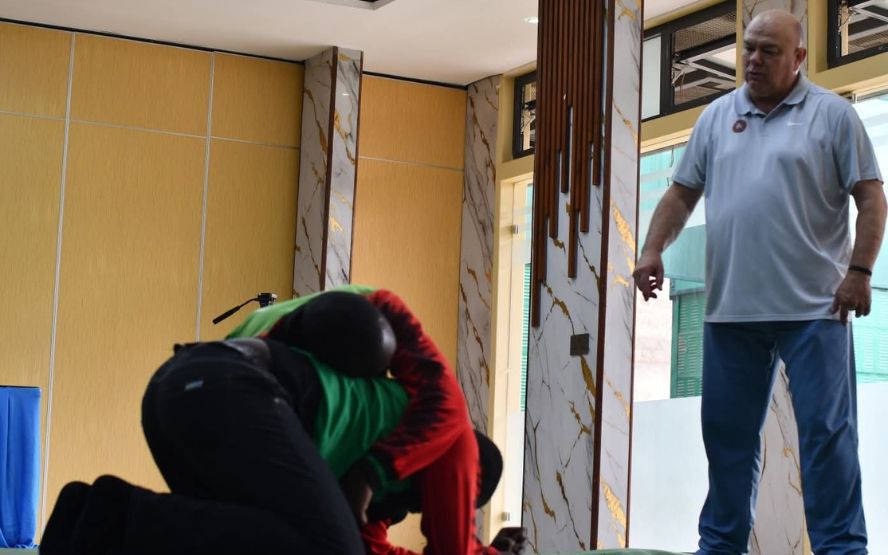As the countdown to the second edition of the East Africa Amateur Wrestling Championships begins, 29 coaches and referees from five countries have successfully completed a comprehensive two-day training workshop in Nairobi. This initiative, part of the Regional Development Tournament (REDT), is a major stride toward professionalising wrestling across the region.
The workshop brought together 18 coaches and 11 referees from Kenya, Uganda, Tanzania, Burundi, and Mauritius. It was organised under the umbrella of United World Wrestling (UWW), the sport’s global governing body. The training aimed to enhance technical capacity, boost officiating standards, and raise the level of coaching expertise ahead of the regional championship.
The referee training sessions were led by a seasoned Olympic referee and UWW International Referee Educator, who commended the region’s commitment to improving wrestling standards. He noted that with consistent training, East Africa would continue to make significant progress both in mat wrestling and beach wrestling.
The program yielded concrete results in referee certification. One referee achieved Level 1 UWW status, while ten others progressed to Level 2, signalling a growing pool of qualified officials in the region.
On the coaching side, the program was overseen by a UWW Regional Development Officer, a French-Ivorian wrestling expert. Out of the 18 participating coaches, eight earned Level 1 UWW coaching certificates, while ten advanced to Level 2. These outcomes reflect a healthy pipeline of trained and certified coaches ready to guide the next generation of wrestlers.
The Kenya Amateur Wrestling Association (KAWA) is now well-prepared to host the East Africa Amateur Wrestling Championships, scheduled for August 9–10, 2025, at Kenyatta University in Nairobi. The competition will feature freestyle wrestling on Saturday and beach wrestling on Sunday.
With this influx of newly trained officials, the region is not only preparing for a high-quality competition but also laying a solid foundation for wrestling’s growth in East Africa. By investing in training, certification, and capacity-building, the participating nations are ensuring that wrestling continues to develop both as a competitive sport and as a platform for regional unity and talent development.
The championship promises to showcase both athletic skill and the results of this strategic investment in human capacity, setting the stage for a bright future for wrestling in East Africa.

